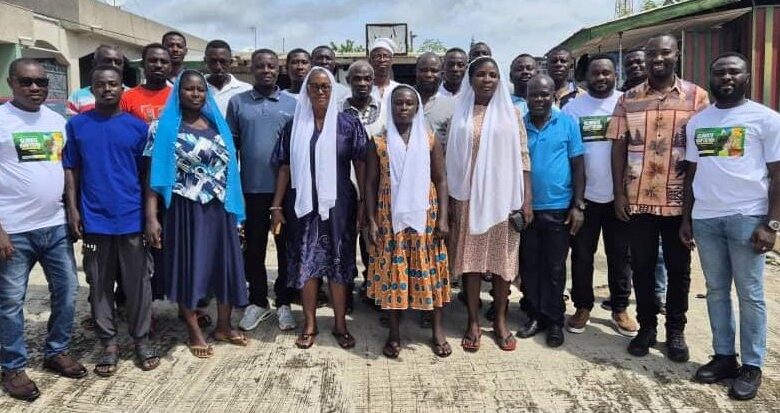
Final-year Development Communication students at the African University of Communication and Business (AUCB) have taken bold steps to promote climate-resilient agriculture through a grassroots climate communication workshop held in Osiem in Ghana’s Eastern region.
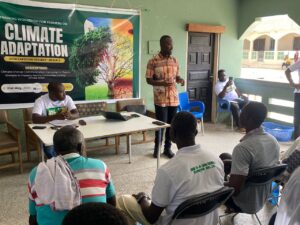
The student-organized workshop, part of a broader climate awareness campaign, pooled 29 smallholder farmers for a one-day training aimed at empowering them with practical knowledge on climate-smart farming. Themed “Climate Change Communication Campaign in Osiem: Strategies for Engaging Farming Communities and Driving Climate Action,” the session tackled the dual challenge of environmental sustainability and rural livelihood resilience.
Facilitated by Mr. Samuel Barima Fosu, Regional Director of Agriculture for Birim North, the workshop stressed a transition toward eco-friendly agribusiness models. Participants were introduced to practices such as organic composting, agroforestry, cover cropping, and reduced chemical use all geared toward improving yields while conserving soil and water resources.
“We all want to sit under shady trees and eat from them, but how many of us actually plant them?” Mr. Fosu asked, urging farmers to consider agroforestry not just as an environmental solution but also an economic opportunity.
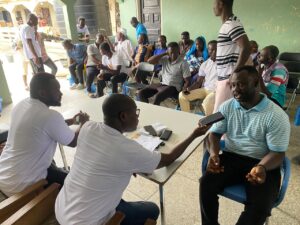
Farmers responded positively, with many describing the workshop as both eye-opening and practical. Kwabena Amoako, a vegetable farmer, expressed optimism: “This training will help increase my yield. But we also need government support to make these practices practical.”
Another participant, Felicia Adjekum, said the training reshaped her farming mindset. “I had no idea that bush burning contributed to climate change. This has changed how I prepare my land.”
The session also underscored the growing business potential in climate-resilient agriculture. Farmers were encouraged to consider the use of organic inputs such as biodegradable bags and biofertilizers, opening doors to agritech innovations and new green enterprises.
Comfort Asiedua, a participant, underscored the need for sustainable pest control: “We shouldn’t use chemicals that completely wipe out pests. Microorganisms are good for the soil. This helps preserve our farms for the future.”
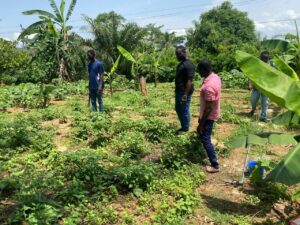
To deepen the impact, Mr. Fosu called on business development institutions to partner with farmer groups in scaling solutions such as compost and biochar production, organic input distribution, and integrated pest management.
“The future of agribusiness is climate-smart,” he said. “Our farmers are ready but they need structured support.”
In calling for stronger partnerships, the student organizers urged public and private stakeholders including agri-tech startups, policymakers, and investors to tap into such community-based platforms to help build robust, climate-resilient value chains in rural Ghana.
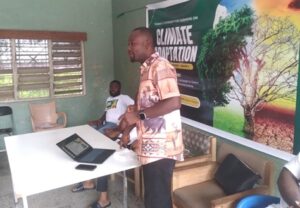
As Ghana accelerates its push toward sustainable agriculture, initiatives like this are planting the seeds for a future defined by resilience, innovation, and informed farming communities.




